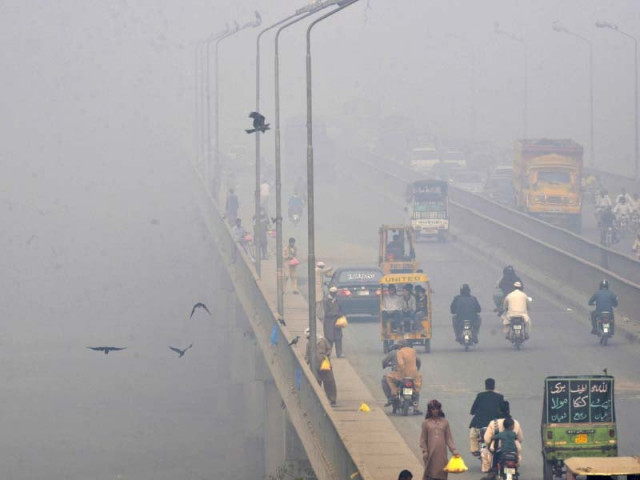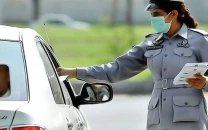Artificial rain planned to fight smog
PU research centre chief ready to demonstrate environmental solution

An experiment of artificial rain to counter smog is set to be carried out for the first time in the country’s history under the supervision of Punjab University's (PU) Centre for Integrated Mountain Research, The Express Tribune learnt.
The centre’s Director Professor Munawer Sabir is heading the team that will initially do the experiment in the Khanspur mountainous area.
The PU team has reportedly completed preparations to demonstrate the technology in an area of one square kilometre.
The team also plans to test artificial rain in Lahore after November 19, following the first trial.
The purpose of the research is to overcome smog, which is proving to be a big environmental threat for Lahore.
Dr Munawer Sabir, who is an internationally renowned professor of geography, has been busy in experimenting with the technology along with his team for several months and is now set to carry out the trial this week.
He is the director of PU's Integrated Mountain Research Centre where research on geographical changes, mountains and environmental issues is conducted. Sources said that he pursued the initiative using his own financial resources and arranged the equipment required for the purpose.
The development comes at a time when smog has become the top environmental problem of Lahore that currently ranks among the most polluted cities of the world.
For many years, different departments in the country have been discussing measures to curb the smog but a comprehensive solution has not yet been presented.
Professor Sabir said around 50 countries had already used artificial rain to overcome smog.
Speaking to The Express Tribune, he said the mechanism could help overcome the problem of smog forever if the government paid more attention to efforts in this regard.
"The main reason for choosing the site of Khanspur for the test is that it is a mountainous area where clouds are frequently present in the surroundings. The level of humidity in the air is also high,” he said.
”We are in contact with the meteorological department and checking the situation of natural rain,” he said, adding that the experiment would be carried out on a day when there were 30 to 40 per cent chances of clouds with a humidity level of around 70%.
Amid the suitable weather conditions, the team will create the circumstances for starting rain artificially with the help of the experience of other countries.
“The only difference here is that I am doing this with my own resources, while in other countries the governments or different departments supported environmentalists in this regard,” the expert said.
“You can use electronic drones of planes. It is not impossible as we have to just spray salt over clouds that makes them concentrate with a higher quantity of water, leading to rainfall. I am doing this experiment in a limited area and have selected a site covering 1km square.”
Dr Sabir said the process would then be replicated in the provincial capital, where the Met Department has forecast clouds for three days after November 19.
“We will select one area of Lahore and do the experiment during these days,” he said.
The expert said Pakistan was among the countries facing water crisis, while Lahore was among most polluted cities, thus the research was vital.
“If we manage to create artificial rain for five to six hours in Lahore in this season then we can counter the impact of the smog as the dust and other elements posing risks to people’s health would be washed away. Many institutions including Suparco and the Civil Aviation Authority, and even individuals owning aircraft can contribute in the process. India did this experiment in 1983, while Dubai adopts the method every year to fill dams and use the water for generating electricity,” said Professor Sabir.
Published in The Express Tribune, November 11th, 2021.


















COMMENTS
Comments are moderated and generally will be posted if they are on-topic and not abusive.
For more information, please see our Comments FAQ